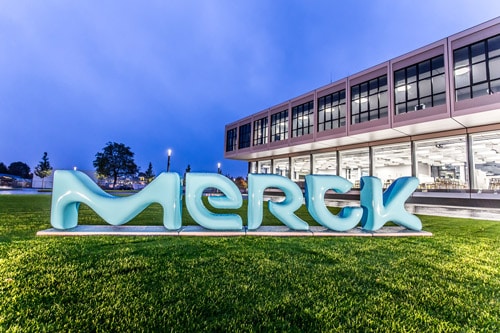
For the new generation of PD-1/PD-L1 inhibitors for cancer, the key to sales growth is to carve out a niche without competition, but Merck KGaA is struggling to find such an indication for its drug Bavencio in the US.
The FDA has just approved Pfizer-partnered Bavencio (avelumab) in combination with Pfizer’s Inlyta (axitinib) as a first-line therapy for patients with advanced renal cell carcinoma (RCC), the most common form of kidney cancer.
However it was pipped to the post in that indication by Merck & Co/MSD’s Keytruda (pembrolizumab), which got an FDA green light alongside Inlyta in RCC in April.
Nevertheless, Merck says RCC is key to achieving its aim of raising Bavencio’s sales to “high-double-digit million euro” levels by the end of the year. It has also been filed for RCC in Europe and Japan with verdicts expected within the next 12 months or so.
For a while, Bavencio is was the only PD-1/PD-L1 to be approved for rare skin cancer Merkel cell carcinoma – although Keytruda has muscled into that market too. At least kidney cancer is a much larger market with upwards of 70,000 new cases in the US every year, according to the American Cancer Society.
Last year, Bavencio picked up another approval in second-line bladder cancer, but is having to compete head-to-head in that indication with four other cancer immunotherapies, including Keytruda and Bristol-Myers Squibb’s Opdivo (nivolumab).
The FDA approval is based on the results of a phase 3 study showing that Bavencio plus Inlyta significantly lowered risk of disease progression or death by 31% and extended progression-free survival (PFS) by 5.4 months for patients with advanced RCC compared with Pfizer’s older drug Sutent (sunitinib).
Data from a phase 3 trial supporting that indication for Keytruda also revealed a 31% reduction in the risk of disease progression or death, with a four month improvement in PFS. Merck/MSD also has overall survival data in hand with its drug, showing a 47% reduction for the combination compared to Sutent.
The Bavencio and Keytruda trials have established the combination of a checkpoint inhibitor and targeted kinase inhibition with Inlyta as the new standard in first-line advanced RCC, according to analysts.
For patients, the approval of a new therapeutic option is a big deal, as there is a critical need for first-line treatments that delay progression and have an acceptable safety profile.
Approximately 20% to 30% of patients are first diagnosed with RCC at the advanced stage, and 30% of patients treated for an earlier stage go on to develop metastases.
The FDA approval in RCC sparks a €35m milestone from Pfizer, which bought into Bavencio in 2014, paying $850m upfront to jointly develop and market avelumab for multiple cancer indications in a deal valued at up to $2.85bn.




